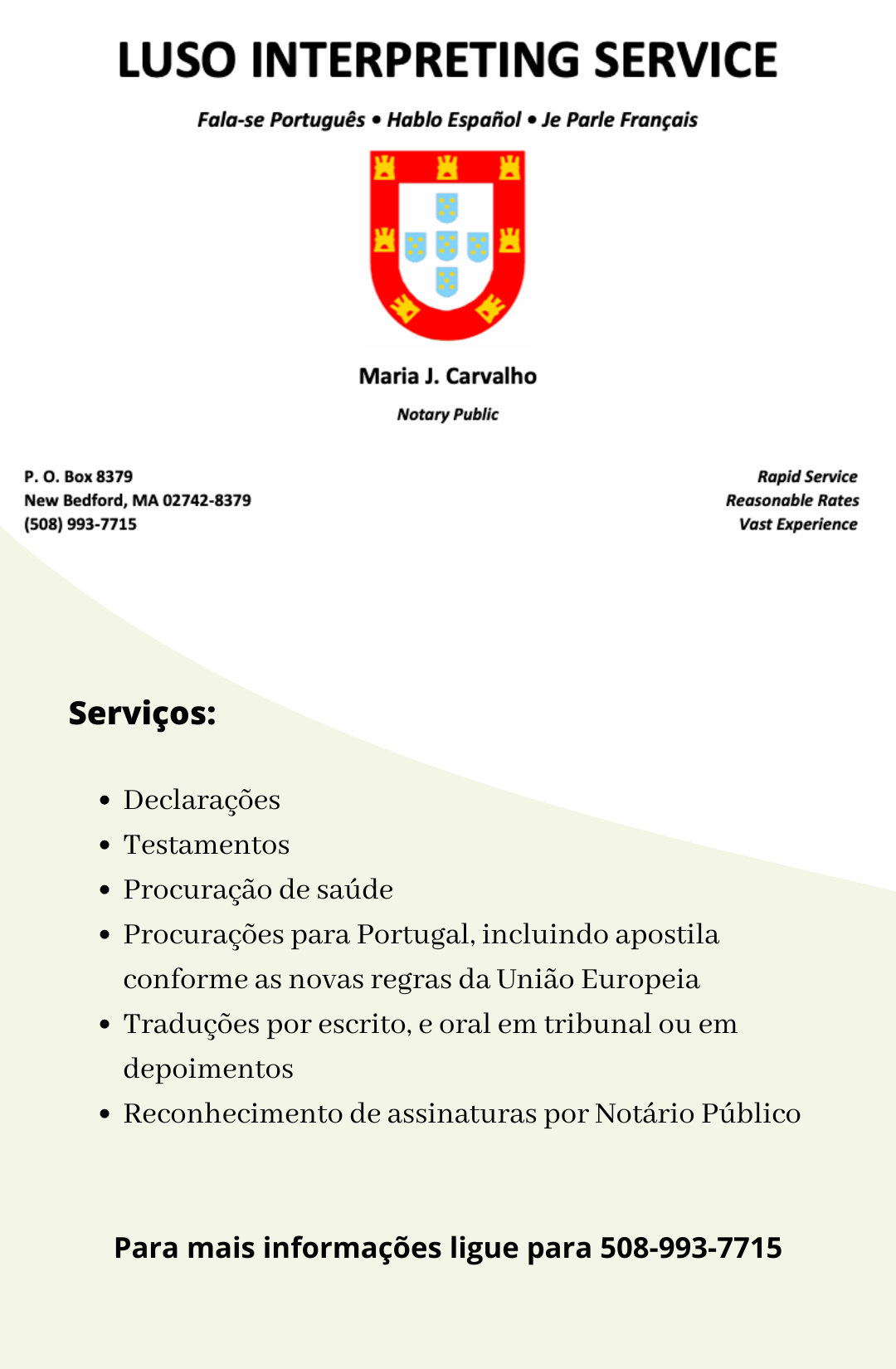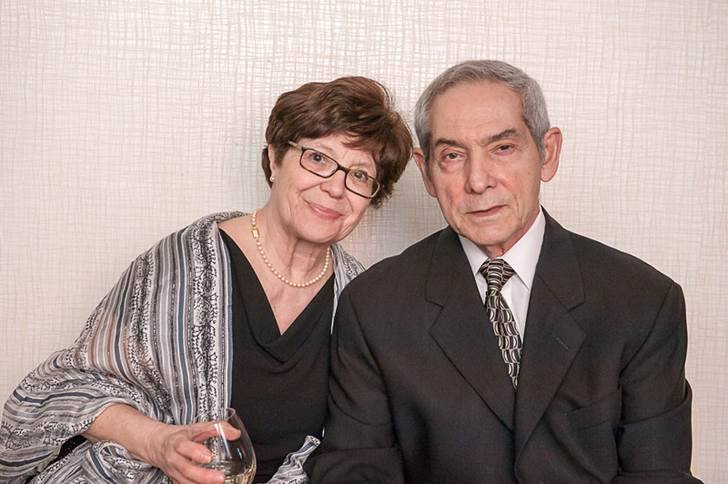Boston, United States, Oct 12, 2021 (Lusa) – Sixty years in the United States, with a “horrible” adaptation period, little support for immigrants, and some discrimination, never made Azorean Rosa-Maria Cardoso Pinto have less love for her origins.
Honored as one of the “builders” of the 50th anniversary of the social service organization Massachusetts Alliance of Portuguese Speakers (MAPS), in Cambridge, Rosa-Maria Cardoso Pinto recalled her emigration journey in an emotional interview to Lusa news agency.
“I love the Portuguese community, I am Portuguese, my roots are Portuguese,” said the emigrant, who arrived in the United States in the early 1960s.
She was 17 when she moved to Cambridge as part of a large family from Angra do Heroísmo, in Terceira.
“My parents were educated,” Rosa-Maria said, emotional. “Financially they were well off, my father had a good job my mother thought piano home,” she continued.
Things became more complicated for the family because of a business partner: “My father had a store in addition to his job, and unfortunately my father’s partner was not…not honest. So that we had to sell our houses,” the emigrant lamented.
Rosa-Maria also recalled that her father made an application to go to the United States when he was still studying, at age 16, but “never heard [any response] from the consulate, or from anyone,” until at age 48 that response came.
“They sent him a letter from the American consulate asking if he was still interested in coming to the United States (…) and he said yes,” Rosa-Maria recounted, adding that she had an uncle who lived in Rhode Island.
“We came in ’60, it was a horrible transition,” recalled the eldest of six children, stressing that at the time “there really wasn’t much help for immigrants” and that, to make it more difficult, there was also a lot of discrimination felt in the United States against foreign communities.
“It was extremely difficult. I was in high school, I was in fifth grade (…) and at the time there was no bilingual education,” she said, in reference to US schools that now include Portuguese in the curriculum, and Portuguese schools in the US that are increasingly being strengthened.
According to data from the Coordination of Portuguese Teaching in the United States, by 2020/2021, the Portuguese language was being taught in 189 US schools, by 386 teachers, with a total of 20 thousand students enrolled to learn the language.
Rosa-Maria stressed that despite the difficulties with American education, “I wanted to study” and so I managed to do it, but with hard work.
“I managed to study, I managed to go to university and finish my degree, but I was always working and studying at the same time,” she said.
Rosa-Maria completed her degree in Social and Public Policy and began working with Portuguese organizations in the US, including the Cambridge Organization for Portuguese Americans (COPA), an organization created in 1970, where she was secretary and a member of the board of directors.
In 1993, COPA and the former Somerville Portuguese American League (SPAL) merged to form the Massachusetts Alliance for Portuguese Speakers, MAPS, which celebrated its 51st anniversary last Saturday with a 300-person gala in Cambridge, Massachusetts.
“It was a very good experience, I learned a lot. The fact that we helped so many people and that [the organization] has grown so much, I never anticipated something so wonderful, we already have branches everywhere,” she said.
Portuguese origins never weakened Rosa-Maria Cardoso Pinto, who continued “always speaking Portuguese” at home.
Her husband, also an immigrant, is from Trás-os-Montes and was Portugal’s vice-consul in New Bedford in the early 1980s when the two met during a cultural event for Portuguese in the US.
After 60 years since the move, Rosa-Maria Cardoso Pinto assured that little by little, the family has overcome the difficult adaptation to emigration.
“I’m divided, I’m really divided. (…) sometimes I feel a little bit like I don’t know where I am. When I go to Portugal, I go home. When I come here [to the United States], I go home,” she concluded.
In the state of Massachusetts, on the east coast of the US, there are more than 300,000 people of Portuguese origin, 67,000 people of Brazilian origin, and 60,000 of Cape Verdean origin, according to 2014 estimates from the American Community Survey.

Artigo em Português
Amor de emigrante por Portugal continua forte após 60 anos na América
Boston, Estados Unidos, 12 out 2021 (Lusa) – Sessenta anos nos Estados Unidos da América, com um período de adaptação “horrível”, poucos apoios aos imigrantes e com alguma discriminação, nunca fizeram a açoriana Rosa-Maria Cardoso Pinto ter menos amor pelas origens.
Homenageada como uma das pessoas “construtoras” dos 50 anos da organização de serviços sociais Massachusetts Aliance of Portuguese Speakers (MAPS), em Cambridge, Rosa-Maria Cardoso Pinto recordou emocionada o seu percurso de emigração, em entrevista à agência Lusa.
“Eu amo a comunidade portuguesa, eu sou portuguesa, as minhas raízes são portuguesas”, disse a emigrante, que chegou aos Estados Unidos no início dos anos 1960.
Tinha 17 anos quando se mudou para Cambridge, como parte de uma família numerosa, proveniente de Angra do Heroísmo, na Terceira.
“Os meus pais eram educados”, disse Rosa-Maria, emocionada. “Financeiramente eles estavam bem, o meu pai tinha um bom trabalho a minha mãe era professora de piano em casa”, continuou.
As coisas ficaram mais complicadas para a família devido a um sócio de negócios: “O meu pai tinha uma loja para além do seu emprego e, infelizmente o sócio do meu pai não foi… não foi honesto. De maneira que tivemos de vender as nossas casas”, lamentou a emigrante.
Rosa-Maria recordou também que o pai fez uma candidatura para ir para os Estados Unidos quando ainda estava a estudar, aos 16 anos, mas “nunca ouviu [nenhuma resposta] do consulado, nem de ninguém”, até que aos 48 anos essa resposta chegou.
“Mandaram-lhe uma carta do consulado americano perguntando se ainda estava interessado em vir para os Estados Unidos (…) e ele disse que sim”, contou Rosa-Maria, acrescentando que tinha um tio que vivia em Rhode Island.
“Viemos em 60, foi uma transição horrível”, relembrou a mais velha de seis filhos, frisando que na altura “não havia realmente muita ajuda aos imigrantes” e que, para dificultar, sentia-se também bastante discriminação nos Estados Unidos contra as comunidades estrangeiras.
“Foi extremamente difícil. Eu andava no colégio, estava no quinto ano (…) e na altura não havia ensino bilingue”, disse, em referência às escolas norte-americanas que agora incluem português no currículo, e escolas portuguesas nos EUA, que estão cada vez mais reforçadas.
Segundo dados da Coordenação do Ensino do Português nos Estados Unidos, em 2020/2021, a língua portuguesa estava a ser ensinada em 189 estabelecimentos de ensino dos EUA, por 386 professores, com um total de 20 mil alunos inscritos a aprender a língua.
Rosa-Maria sublinhou que apesar das dificuldades com o ensino norte-americano, “queria estudar” e assim conseguiu fazer, mas com trabalho árduo.
“Consegui estudar, consegui ir para a universidade e acabar o meu curso, mas foi a trabalhar sempre e estudar ao mesmo tempo”, afirmou.
Rosa-Maria completou o curso em serviços sociais e começou a trabalhar com entidades portuguesas nos EUA, entre as quais a Cambridge Organization for Portuguese Americans (COPA), organização criada em 1970, onde foi secretária e membro do conselho diretivo.
Em 1993, a COPA e a antiga Somerville Portuguese American League (SPAL) fundiram-se para formar a Aliança para Falantes de Português de Massachusetts, MAPS na sigla em inglês, que celebrou 51 anos no último sábado, com uma gala com 300 pessoas, em Cambridge.
“Foi uma experiência muito boa, aprendi imenso. O facto de que ajudámos tantas pessoas e de que [a organização] cresceu tanto, nunca antecipei uma coisa tão maravilhosa, já temos ramos [escritórios] em todo o lado”, disse.
As origens portuguesas nunca enfraqueceram para Rosa-Maria Cardoso Pinto, que continuou “sempre a falar português” em casa.
O marido, também emigrante, é proveniente de Trás-os-Montes e era vice-cônsul de Portugal em New Bedford no início dos anos 1980, quando os dois se conheceram durante um evento cultural para portugueses nos EUA.
Passados 60 anos desde a mudança de país, Rosa-Maria Cardoso Pinto garantiu que, aos poucos, a família ultrapassou a difícil adaptação à emigração.
“Eu estou dividida, realmente estou dividida. (…) às vezes sinto-me um bocadinho sem saber onde estou. Quando vou a Portugal, vou a casa. Quando venho aqui [Estados Unidos], volto a casa”, concluiu.
No Estado de Massachusetts, na costa leste dos EUA, vivem mais de 300 mil pessoas de origem portuguesa, 67 mil pessoas de origem brasileira e 60 mil de origem cabo-verdiana, segundo estimativas de 2014, da pesquisa American Community Survey.





